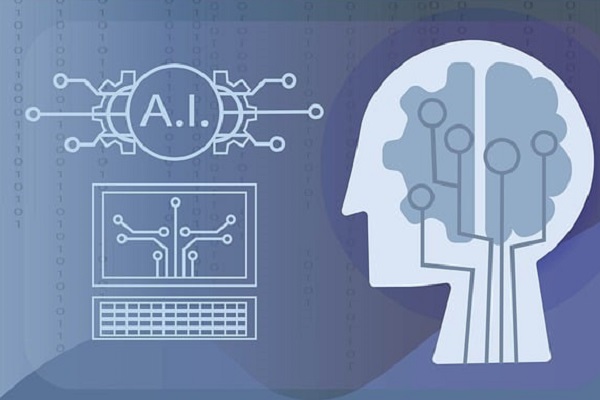Words: Niharika SAPRA
The most promising and potentially game-changing aspect of AI is its ability to improve healthcare.
— Dr Vivienne Ming, PhD, neuroscientist and AI professional.
The AYUSH System has, in the recent past, reached new horizons and expanded globally. To serve its new dimension, it has also enhanced the use of modern technologies, like Artificial Intelligence [AI], Decision Support Systems [DSS], Ayurgenomics, Machine Learning [ML] etc.
The application of AI in Complementary and Integrative Medicine [CIM] encompasses early accurate diagnosis, analysing patient data for personalised treatment plans, real-time treatment and improved treatment outcomes. AI helps to increasing efficiency, analysing medical records, predictive modelling, clinical trial designs, data-driven insights, records mining, and discovering new treatments and remedial actions.
Leveraging AI
The AYUSH Ministry has plans to leverage AI in Research, Drug Manufacturing and Supply Chain Management. AI in AYUSH would be helpful for evidence-based research, identifying correlations between various predisposing factors and personality traits in the occurrence of various illnesses, especially lifestyle disorders. During COVID-19, the Ministry conducted Mobile App [AI-regulated] Ayush Sanjivani, based on Survey Research that collected data sets from 1.4 crore people and found that 89.8 per cent strongly, or moderately, agreed to have benefitted from AYUSH measures for maintaining their health during the pandemic.
In the era of global digitalisation, Ayushman Bharat Digital Mission [ABDM], a centralised initiative of the Government of India has a Unique Health ID named Ayushman Bharat Health Account [ABHA] for citizens of India. It provides a platform for sharing HER [Electronic Health Records] and PHR [Personal Heath Records]. This creates the electronic record of health-related information of individuals that conforms to nationally recognised interoperability standards. They can be drawn from multiple sources while being managed, shared and controlled only by the individual. This enables easy access to all medical records of the patient and this can be used for National Research Programmes with the consent of the individual. Many diseases can be studied pragmatically with the use of these AI records. Also seamless AI analysis can be done and a better patient-centric healthcare system developed.
There are AI-based software which digitise traditional diagnostic tools for analysing personality [prakruti], pulse [nadi] and tongue examination, which helps physicians diagnose illnesses within no time and treat them. These apps when used for different research studies can help in understanding the co-relation between personality, pulse and different diseases, enabling better research studies, treatment and prognosis. The ministry has also launched various IT initiatives, such as Ayush Clinical Case Repository Portal, Ayush Information Hub, Ayush Research Portal, E-Aushadhi Portal, Ayush Grid Project etc., for bringing quality healthcare and global well-being for all.
AI In Homeopathy
AI tools are being used in homeopathy since a long time. AI-powered homeopathic software, like Hompath, Synthesis, Zomeo, etc., help with repertory analysis, remedy selection, record keeping and patient management. Applications like MacRepertory, Remedy Finder, HomeoSoft, etc, use AI to help homeopaths find the most suitable remedy. Homeopathic Research Database, Homeopathic Education Platform, HomeoDoc, Homeopathy Buddy, Patient Tracker, among others, are AI-based platforms used across the globe by homeopathic fraternity.
In the near future the presence of particles in highly diluted homeopathic medicines may be predicted with the use of AI Advanced Data Analysis which evaluates large datasets from various analytical techniques, such as spectroscopy, chromatography, or microscopy, to identify patterns and correlations indicating the presence of particles.
AI-powered machine learning algorithms, and machine learning-based Anomaly Detection can detect data that may indicate the presence of particles in highly diluted homeopathic medicines. AI-powered predictive models simulate the behaviour of particles in homeopathic medicines and can be used by researchers to understand how particles might interact with the body. These particles can be detected via Dynamic Light Scattering [DLS] and Nanoparticle Tracking Analysis [NTA], for individual particles to determine size, distribution, and concentration. AI-powered Image Analysis and Scanning Electron Microscopy [SEM] can, likewise, produce high-resolution images of particles and Transmission Electron Microscopy [TEM] can provide detailed images of particles at the nano[scale] level.
AI-powered Natural Language Processing [NLP] and Text Mining tools help researchers analyse large volumes of homeopathic literature, extracting relevant data and insights. AI-powered Machine Learning [ML] Algorithms, Deep Learning Techniques, Artificial Neural Networks [ANNs], and Decision Trees can be used in identifying the relationship between homeopathic remedies and symptoms, while facilitating the discovery of new remedies, as also predicting potential side-effects and identifying the most effective remedy for a specific disease condition, respectively. AI-driven Systems Biology Approaches [SBA] model and Graph Theory help researchers to reveal hidden patterns and relationships between homeopathic remedies and disease too.
Though AI can contribute immensely, the downside is its inability to predict emotions artistically. Emotional Intelligence [EI] is a predominant quality of human beings. As homeopathic drug proving involves experimentation in human beings, it becomes difficult for AI to predict mental generals. Also, the data accrued, pertaining to many subjects is not streamlined — this makes it challenging to come to a solo conclusion. It, therefore, is important that a standard is followed in research throughout the globe and streamlined data are provided for better records and analyses. Keeping in mind the differences in lifestyle, geographical conditions, eating habits and much more, AI should be used in a way that segments different countries and regions in conducting research.
In this fast-paced world, where AI algorithms analyse patient data to enhance accuracy in diagnosis, integrating genomic, lifestyle, and environmental data for precise personality determination are imperative. AI accelerates the discovery of medicinal herbs and predicts herb-drug interactions. It forms personalised herbal combinations, while preserving traditional knowledge. AI-driven health monitoring provides personalised treatment and lifestyle recommendations, based on AYUSH principles. It becomes essential for healthcare providers and researchers to be constant learners. As Dr Dhruv Khullar, MD, Presbyterian Hospital, articulates, “[We should recognise] that humans, not machines, are still responsible for taking care of patients. It is, therefore, our duty to ensure that we’re using AI as another tool at our disposal — not the other way around.”

